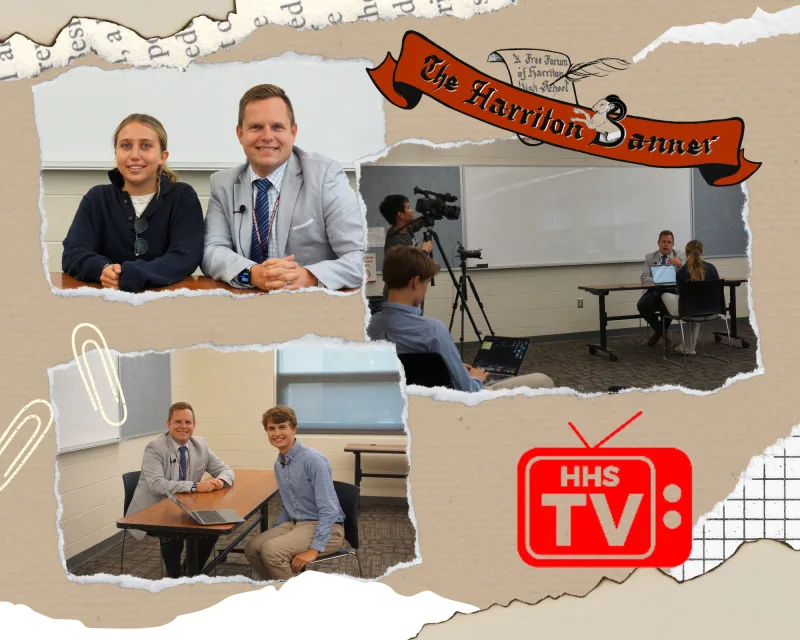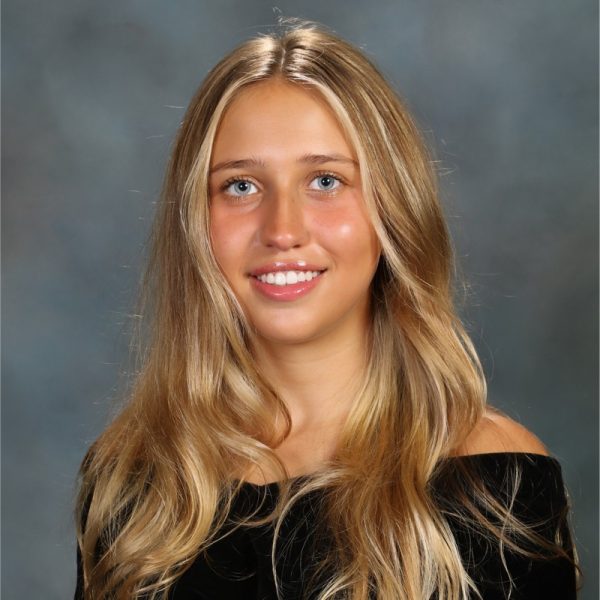This past week, the Harriton Banner was privileged to speak with our district’s brand new superintendent, Dr. Steven Yanni, successor to Dr. Khalid Mumin, named Pennsylvania Secretary of Education by Governor Josh Shapiro. From his journey in education to his approaches to the most hot button issues in the district, The Banner presents Dr. Yanni unveiled.
THB: It’s a pleasure to meet you, Dr. Yanni! I know you’ve had a long and distinguished career in education; tell me how you ended up in Lower Merion.
Yanni: When I grew up I always wanted to be a teacher; I knew from kindergarten that I wanted to be a teacher. So, I’ve taught in a couple different places and after teaching for several years I had the great opportunity to become a principal, then director of curriculum, then assistant superintendent and superintendent. So, this is my third superintendency: New Hope Solesbury, Upper Dublin, and now here in Lower Merion. It’s great to be here.
THB: What would your number one piece of advice be for current high school students?
I’ve thought about this a lot because I’ve been asked this question a lot over the years. When I was in high school, I was so focused on getting good grades. I wasn’t a great student in middle school; it wasn’t until I had a couple of great teachers that I really connected with in high school that I felt that school was really important.
But then, I became so focused on getting the ‘A’ that there were many times I stressed myself out just to get that ‘A’ or making sure I took enough AP classes, and I don’t think that I enjoyed my high school experience as much as I wish I would’ve. I was involved in a lot of extracurriculars but I was too caught up in the mindset of ‘what does it mean for my college application?’ If I could go back and give myself some advice, I would really go back and enjoy my high school experience much more.
THB: As superintendent, what initiatives are most important for you to advance?
First and foremost, the student voice is really important to me. Over the next month, we’ll be working with the principals in our middle schools and high schools and counselors to set up student advisory teams in each building. What I really want to create is a small group of students in each building that represent a cross-section of the entire school and then meet monthly over lunch. We’ll allow time for students to bring agenda items or I might throw some topics out, but I really want to hear directly from the students.
I feel really passionately about student voices, because I don’t know that schools, not just Lower Merion or Harriton, but schools all over do enough of actually listening to student voices. It’s about helping students understand that many times when they give input, we’re going to be able to take that input and make decisions about it. Sometimes we’re going to take that input and not be able to make decisions with it, but we’re going to explain why. That’s one piece.
The other is staff voice, so I’ll be doing listening posts in buildings because I want people to feel really comfortable with me as superintendent; I want them to say here’s what I’m feeling, here’s what I’m thinking, here’s where I want our district to go, and then also doing that with community. I’ll set up a number of meet and greets so that I have a really good understanding of what we stand for in Lower Merion and where we wanna go. Those three things will not just spam this year; they’ll be hallmarks of my leadership moving forward. Ultimately, at the end of the day, we want to make sure that kids are successful when they’re with us, and also beyond our K-12 walls. When you all leave high school, whether you’re headed for college, the military, or the workforce: how are we setting you up for success when you’re no longer with us?
THB: Many students are upset by the district’s new ‘Off and Away’ policy. Especially with the removal of iMessage from our school computers and the weak cell reception in the school building, many students are upset about their lack of accessibility to their family during the school day. How would you address their concerns?
First and foremost, I want to honor the fact that there are concerns. I’m never going to be the type of person that says that your concerns aren’t valid; I hear you. I’m challenging the administration to follow the same policy of Off and Away. I was standing with members of the administration upstairs about a week ago and I had my phone out because I was taking pictures and a student walked by while I was still holding it, and he said “Dr. Yanni, off and away!”
First, I want to honor the fact that I know it’s not the most popular policy. Research shows, we’ve met with other districts and we’ve heard really great outcomes of an Off and Away policy. We want you all to be able to focus on your learning without any interruptions, and as we go through this year, I’m going to be asking from the superintendent advisory team and other groups I’ll be hosting to give me some real feedback on how we can tweak that. I personally have turned off my iMessage on my Mac because I found it to be a distraction.
Any time you start something new, it’s difficult until it becomes a routine. I know there are many opportunities we need to communicate with others, but when we’re in school, we really need to focus on learning, and then identify those times during the day when we can have devices. I and most of your teachers grew up in a time where we didn’t have so much access to everything, and now you’re so bombarded with information throughout your school career. We need to take natural steps to reduce that information overflow you’re having. But like I said, we’re open to feedback and making adjustments as we need to.
THB: The environmental preservation of Oakwell has been a hot topic within the district recently. As superintendent, what stance do you intend to take on this issue?
People have been really clear with their perceptions of what needs to happen with Oakwell. We’re actually seeing both sides of that: in recent public meetings, we’ve had people get up and challenge us to move forward with Oakwell but we’ve also had voices saying Oakwell needs to be preserved. What we’re doing right now is trying to find common ground. We know we need field space for kids to have great extracurricular opportunities; we know there’s this desire for Oakwell to be preserved and saved.
At some point, this is gonna work itself out. I think one of the unique hallmarks of your generation is the passion that people have for the environment, so I feel confident that we will come up with a solution that will preserve nature but also give us the field space that we need. I’m not trying to give you a non-answer, we’re just not at the point where we’re ready to make hard and fast decisions.
THB: The number-one cause of death for school-aged children is gun violence. As superintendent, how do you aim to address this issue and maintain a safe environment within LMSD schools?
First and foremost, we need to constantly focus on security. The news reports each year are punctuated with reports of school violence, which doesn’t mean that we need metal detectors and Draconian measures. What it means is that we need to be as educated as possible. We need to teach kids all the way through high school and even adults about how to get help when they need it. To really prevent violence, we need more education on the impact of violence. We have to have better mental health support and just better support in place.
As I evaluate systems in the district in my first year, there are a number of agencies that I’m collaborating with on bringing into the district starting with our youngest kids: 3rd, 4th grade. Even though sometimes people say “well, that’s really young to start talking to kids about guns”, if we don’t start having these conversations, I don’t think we’re setting kids up for success. You’re always going to hear from me that education is the most important piece because that’s the best prevention moving forward.



